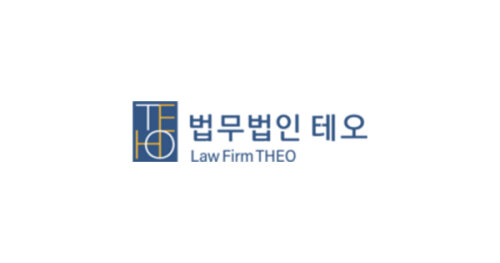Best Conveyancing Lawyers in Yeonsu-gu
Share your needs with us, get contacted by law firms.
Free. Takes 2 min.
Free Guide to Hiring a Real Estate Lawyer
List of the best lawyers in Yeonsu-gu, South Korea
About Conveyancing Law in Yeonsu-gu, South Korea
Conveyancing is the legal process of transferring property rights from one person to another. In Yeonsu-gu, an urban district of Incheon that includes Songdo International Business District, conveyancing covers the sale and purchase of land, apartments, commercial premises, and associated rights such as mortgages and leasehold interests. Under Korean law, the sale contract creates obligations between buyer and seller, but ownership of real estate is perfected by registration in the Real Estate Register - a process called deung-gi (등기). Because registration is decisive for priority and ownership, most conveyancing work focuses on preparing and securing the correct registration and performing thorough due diligence to identify encumbrances, taxes, and regulatory requirements.
Why You May Need a Lawyer
Many property transactions in Yeonsu-gu are straightforward, but legal assistance becomes important in a variety of situations. A lawyer helps to reduce risk, clarify rights, and ensure proper transfer and registration. Common reasons to hire a lawyer include:
- Complex title situations, including disputes over ownership or incomplete succession records
- Properties with mortgages, liens, or pending foreclosures where priority issues matter
- Purchases involving tenants - including jeonse (long-term deposit leases) - where tenants rights and registrations affect possession and refund obligations
- Cross-border transactions or purchases by foreigners that may require specific permissions, reporting, or translation of documents
- New developments, pre-sale contracts, or off-plan purchases that require detailed review of developer obligations and construction permits
- Disputes over deposit refunds, contract breaches, or defects discovered after purchase
- Tax planning for acquisition tax, registration tax, capital gains considerations, and potential exemptions or surcharges
- Handling registration applications at the Real Estate Registration Office and responding to administrative rejections or corrections
Local Laws Overview
Several legal frameworks are especially relevant to conveyancing in Yeonsu-gu:
- Civil Act: Governs contracts, property rights, co-ownership, and basic transfer principles. In Korea, a sale contract creates an obligation to transfer ownership, but the transfer itself requires registration.
- Act on Registration of Real Estate: Regulates the procedures, requirements, and effects of real estate registration. Registration establishes legal ownership and affects priority against third parties.
- Local Tax Law and National Tax Rules: Acquisition tax, registration tax, local property taxes, and capital gains tax rules apply to property transactions. Rates and surcharges can vary depending on property type, whether the buyer is an owner-occupier, and whether the buyer already owns other real estate.
- Housing Lease Protection Act and related provisions: Protects tenants, including jeonse and monthly lease tenants. Lease agreements can survive a change of owner and may have priority claims if properly registered. Buyers must check tenant protections and deposit security.
- Zoning, Building, and Land Use Regulations: Municipal and national laws regulate permitted uses, floor area ratio, building permits, and certification for new constructions. Songdo and other developments may have special planning rules or master plans affecting redevelopment and permissible uses.
- Rules on Foreign Acquisition of Real Estate: Foreign nationals and foreign entities should confirm what permissions or reports are required. Certain land and property types may be subject to notification or approval requirements. Legal advice is recommended for non-Korean purchasers.
Frequently Asked Questions
What steps does a typical conveyancing transaction follow in Yeonsu-gu?
A typical transaction includes initial negotiation and agreement on price, due diligence by the buyer (title search, checks for encumbrances, confirmation of taxes and permits), signing a written sale contract, payment of deposit and balance, applying for registration of the transfer at the Real Estate Registration Office, and payment of acquisition and registration taxes. Lawyers often prepare or review contracts, conduct the due diligence, and submit registration documents to finalize the transfer of ownership.
Does ownership pass when the sale contract is signed or at registration?
Under Korean law, the sale contract creates an obligation to transfer ownership, but legal ownership in most cases is transferred only by registration in the Real Estate Register. That means buyers should secure prompt registration to protect ownership against third-party claims.
What is the Real Estate Register and why is it important?
The Real Estate Register records ownership, mortgages, liens, easements, and registered leasehold rights. It determines legal priority and is the key document used in due diligence. A registered interest generally has priority over unregistered interests, so checking the register is essential before completing a purchase.
How do tenant lease agreements affect a sale?
If a property is subject to a lease, the lease typically continues after the sale and the new owner takes the property subject to the tenant rights. Registered leases have stronger protection and priority against creditors. Buyers must review lease contracts, confirm deposit security, understand the duration and renewal terms, and factor tenant rights into price and possession timelines.
What taxes and fees should I expect when buying property?
Buyers need to budget for acquisition tax, registration tax and fees, possible broker commissions, and legal fees. In time of sale, capital gains tax may apply to the seller and can affect net price. Local and national tax rules change periodically and can include surtaxes for multiple-home owners or high-value transactions. Consult a lawyer or tax specialist for current rates and possible exemptions.
Are there special rules if the buyer is a foreign national?
Foreign buyers should check whether the property requires notification or approval under Korean law. Certain land or strategic areas may be restricted. Foreign buyers often need to prepare additional documentation, may need a Korean resident agent or representative, and should confirm banking, currency transfer, and tax reporting obligations. Legal counsel familiar with cross-border conveyancing is recommended.
What common risks should buyers watch for in Yeonsu-gu?
Risks include undisclosed mortgages or liens, unresolved inheritance issues that cloud title, poorly documented repairs or alterations that lack building permits, tenant claims or unregistered leases, outstanding local taxes, and seller default on representations about the property. Location-specific issues may include special zoning rules or planned developments that affect future use and value.
Can I use a standard form sale contract or should it be customized?
Standard form contracts are common, but they may not cover all issues relevant to a specific property. A lawyer can tailor contract terms to allocate risk, set clear payment and possession conditions, add deposit protection measures, include warranties on title and permits, and define remedies for breaches. Customized contracts are advisable in transactions with complexity or significant value.
How long does the registration process take?
The time to register can vary based on the completeness of documents, whether additional certificates or notarizations are required, and current processing times at the registration office. With complete documentation and professional handling, registration may be completed within days to a few weeks. Complex cases, such as those involving disputes or missing documents, will take longer.
What documents should I bring to a lawyer for a conveyancing consultation?
Useful documents include the property register extract, the land or building deed or sale memorandum if available, any existing lease agreements, mortgage statements, recent tax payment receipts, building permits or certificates, the seller's identification and corporate documents if applicable, and any prior sale contracts. For foreign clients, passport and any power of attorney should be prepared. Bringing as much documentation as possible speeds up the review.
Additional Resources
Below are types of resources and local contacts that can assist someone dealing with conveyancing in Yeonsu-gu:
- Yeonsu-gu District Office - for local zoning, building permits, and local tax inquiries
- Incheon Metropolitan City offices - for regional planning and taxation matters
- Real Estate Registration Office - for title searches and registration procedures
- Korean Bar Association and local bar associations - for lists of qualified real estate lawyers
- Korea Legal Aid Corporation - for low-cost or free legal assistance in qualifying cases
- Tax offices and local tax consulting services - for current rates and tax filing help
- Licensed real estate brokers and appraisers - for market advice and valuation
- Consumer protection bodies and dispute resolution centers - useful if you encounter unfair practices or contracts
Next Steps
If you need legal assistance with conveyancing in Yeonsu-gu, follow these steps to protect your interests and move the transaction forward:
- Collect documentation about the property and any existing agreements or notices you have received.
- Arrange an initial consultation with a lawyer who specializes in real estate and conveyancing. Ask about experience with transactions in Yeonsu-gu or Songdo, fees, the scope of services, and estimated timelines.
- Authorize a title search and due diligence investigation as early as possible. This includes checking the Real Estate Register, confirming tax status, inspecting outstanding liabilities, and reviewing permits and leases.
- Use a written engagement letter that states fees, services, and expectations. Clarify who will handle registration, tax filing, and communication with other parties.
- If you are a foreign buyer, discuss translation needs, power of attorney, permission or reporting requirements, and how funds should be transferred legally and safely.
- Negotiate contractual terms based on due diligence findings. Include clear conditions for deposit, timelines for registration, remedies for breaches, and any escrow or trustee arrangements if appropriate.
- Proceed to registration promptly after closing to ensure your ownership is protected. Confirm payment of required acquisition and registration taxes and retain receipts and certified registration documents.
Conveyancing in Yeonsu-gu requires attention to legal and practical details. Engaging experienced legal counsel early reduces risk and helps ensure a smoother transfer of property rights.
Lawzana helps you find the best lawyers and law firms in Yeonsu-gu through a curated and pre-screened list of qualified legal professionals. Our platform offers rankings and detailed profiles of attorneys and law firms, allowing you to compare based on practice areas, including Conveyancing, experience, and client feedback.
Each profile includes a description of the firm's areas of practice, client reviews, team members and partners, year of establishment, spoken languages, office locations, contact information, social media presence, and any published articles or resources. Most firms on our platform speak English and are experienced in both local and international legal matters.
Get a quote from top-rated law firms in Yeonsu-gu, South Korea — quickly, securely, and without unnecessary hassle.
Disclaimer:
The information provided on this page is for general informational purposes only and does not constitute legal advice. While we strive to ensure the accuracy and relevance of the content, legal information may change over time, and interpretations of the law can vary. You should always consult with a qualified legal professional for advice specific to your situation.
We disclaim all liability for actions taken or not taken based on the content of this page. If you believe any information is incorrect or outdated, please contact us, and we will review and update it where appropriate.









